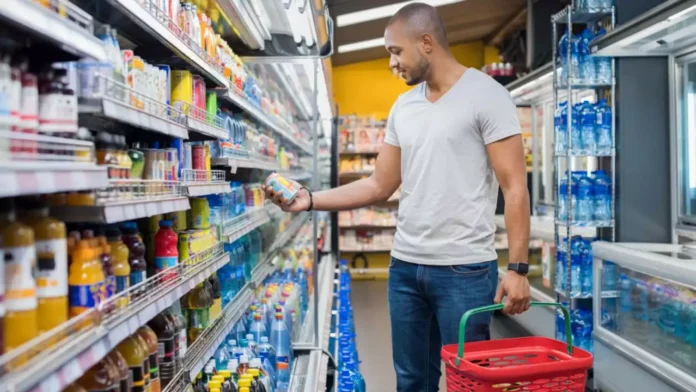Several Indian fast-moving consumer goods (FMCG) companies are considering Dubai as the base for their global expansion, according to Ashraf A. Mahate, the chief economist for trade and export development in the Dubai government.
Mahate emphasized the strategic advantage for Indian FMCG companies aiming to access global markets like the Middle East, Africa, or Europe to establish a presence in Dubai. This allows them to leverage top-tier infrastructure, port and airport connectivity, and numerous trade agreements already established or in negotiation by the United Arab Emirates (UAE).
He said despite India having a production linked incentive (PLI) for the food processing industry, Dubai is geared towards this industry with export and re-export infrastructure which will enable savings for the Indian companies across both financial and time.
“It is a strong reason to invest in Dubai when 20% of the cost of export is logistics. If they can add value after bringing the materials, it would become a made in UAE product whereby companies can avail the benefit from the trade agreements signed by UAE,” said Mahate. He said Indian pharmaceutical companies already use Dubai as a base before exporting to Africa.
Continue Exploring: Online gifting giant IGP enters Dubai, aims at $10 Million revenue in 1.5 years
Mahate mentioned that Indian companies are considering options such as establishing manufacturing units with local value addition and engaging in the re-export of commodities and various FMCG products. Additionally, the India-UAE Comprehensive Economic Partnership Agreement (CEPA) is expected to aid this process by allowing Indian companies to procure their raw materials from India duty-free.
“Dubai already has built linkages for raw materials. For instance, even when we don’t have any local sugarcane production, yet we have one of the world’s largest sugar refineries in Dubai. We get oil seeds from the USA and produce cooking oil in Dubai which is then exported. Unilever has a big personal care factory here producing Lifebuoy soap for the Middle east and Africa. For start-ups, Dubai itself has people from over 100 countries which could be a big testing ground before they explore other global markets,” said Mahate.
Continue Exploring: Rebel Foods expands to Saudi Arabia, aims for $100 Million food delivery enterprise in three years
Himalaya Wellness has already initiated the establishment of a plant in Dubai Industrial City, the prominent manufacturing and logistics hub of the region. The plant aims to facilitate the export of herbal medicines and personal care products and is anticipated to commence operations by the end of 2024.
Saud Abu Al Shawareb, the executive vice president of Dubai Industrial City, highlighted that among the new investors, 70% are seeking export opportunities, while the remaining 30% are aiming to penetrate the domestic market.
“Several local businesses owned by Indian investors such as IFFCO Group are also expanding their business from here,” he said.
Continue Exploring: Chai Sutta Cafe strengthens presence in Middle East with Dubai’s Preatoni Tower outlet
The emphasis on the manufacturing sector aligns with Dubai’s Economic Agenda D33, aiming to double GDP and foreign trade by 2033. Currently, manufacturing contributes 9% to the Dubai economy, contrasting with the logistics sector, including passenger traffic, which accounts for 28%. Notably, Dubai already exports food and beverage products to 130 countries.
Dubai imports a variety of bulk commodities from India, including lentils, pulses, oil seeds, nuts, fresh fruits, and vegetables. Additionally, Indian fruits and vegetables are re-exported from Dubai to various other countries. Notably, Dubai holds the distinction of being the world’s largest re-exporter of fresh fruits and vegetables.
Continue Exploring: From basmati to chicken: Indian products in high demand as the UAE seeks to expand imports





